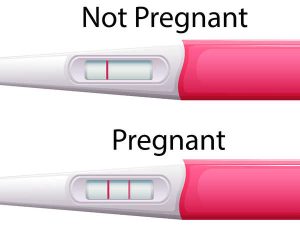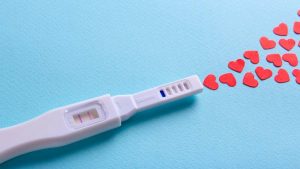If you are trying to conceive, you may wonder how exercise affects your fertility. Exercise is an important part of a healthy lifestyle, but too much or too little can have negative consequences for your reproductive health. In this blog post, we will explore the connection between exercise and fertility, and offer some tips for finding the right balance for you.
How does exercise affect fertility?
Exercise can have both positive and negative effects on fertility, depending on the type, intensity, frequency, and duration of your physical activity. Some of the benefits of exercise for fertility include:
– Improving blood circulation and oxygen delivery to your reproductive organs, which can enhance their function and quality.
– Regulating your hormones and reducing stress, which can affect your ovulation and menstrual cycle.
– Maintaining a healthy weight and body fat percentage, which can influence your fertility potential and reduce the risk of complications during pregnancy.
– Boosting your immune system and preventing infections, which can harm your reproductive health.
– Increasing your energy levels and mood, which can improve your sexual desire and performance.
However, exercise can also have some negative effects on fertility if you overdo it or underdo it. Some of the drawbacks of exercise for fertility include:
– Disrupting your hormonal balance and ovulation, especially if you exercise too intensely or too frequently. This can lead to irregular periods, anovulation (no ovulation), or luteal phase defect (shortened second half of your cycle).
– Reducing your body fat percentage below a certain threshold, which can affect your estrogen levels and cause amenorrhea (absence of periods) or oligomenorrhea (infrequent periods).
– Increasing your risk of injuries, inflammation, or oxidative stress, which can damage your reproductive tissues or interfere with implantation.
– Affecting your appetite and nutrition, which can result in undernutrition or overnutrition. Both can impair your fertility and affect the development of your baby if you conceive.
How much exercise is optimal for fertility?
There is no one-size-fits-all answer to this question, as different people have different needs and preferences when it comes to exercise. However, some general guidelines that may help you find the optimal amount of exercise for your fertility are:
– Aim for moderate-intensity exercise for about 30 minutes a day, five days a week. Moderate intensity means that you are breathing harder than normal but can still talk comfortably. Examples of moderate-intensity exercises include brisk walking, jogging, cycling, swimming, or dancing.
– Include some strength training exercises two to three times a week to build muscle mass and bone density. Strength training can also help you maintain a healthy weight and body fat percentage. Examples of strength training exercises include lifting weights, using resistance bands, or doing bodyweight exercises like push-ups or squats.
– Avoid excessive or extreme exercise that causes you to feel exhausted, dizzy, nauseous, or in pain. This can indicate that you are pushing yourself beyond your limits and putting too much stress on your body. Examples of excessive or extreme exercises include marathon running, high-intensity interval training (HIIT), competitive sports or endurance events.
– Listen to your body and adjust your exercise routine according to your cycle phases, symptoms, and feelings. You may need to reduce the intensity or duration of your exercise during certain times of the month, such as before or during your period, around ovulation, or after ovulation. You may also need to modify your exercise depending on how you feel physically and emotionally. For example, if you are feeling tired, sore, or depressed, you may want to take it easy or do something gentle like yoga or stretching.
What are some tips for exercising safely and effectively for fertility?
Here are some tips that can help you make the most of your exercise routine for fertility:
– Consult with your doctor before starting or changing any exercise program, especially if you have any medical conditions or concerns that may affect your fertility or pregnancy. Your doctor can advise you on the best type and amount of exercise for you based on your situation.
– Warm up before and cool down after each exercise session to prevent injuries and improve recovery. Warming up helps prepare your muscles, joints, and cardiovascular system for the activity ahead. Cooling down helps lower your heart rate and blood pressure gradually and prevents muscle soreness and stiffness.
– Stay hydrated throughout the day and especially before, during, and after exercise. Dehydration can impair your performance and cause headaches, cramps, fatigue, or dizziness. Drink water or other fluids regularly and avoid alcohol, caffeine, or sugary drinks that can dehydrate you further.





